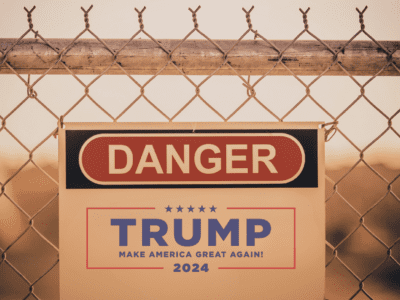Environmental Regulation as a Jobs Program
This is a continuation of my earlier posting about the impact of environmental law on the economy as a whole, putting aside its benefits in terms of human health and welfare. As in the earlier post, I’m going to use the compliance cost estimate of a report from the Small Business Association of $280 billion (2009 dollars), since that’s a number liked by opponents of environmental regulation. It may seem counterintuitive, but in the present economy, this spending is not just warranted because of its environmental benefits – it’s also providing badly needed jobs.
People tend to think of money spent on compliance as if it just disappeared from the economy. But compliance costs are real payments to employees or other company; it’s not as if the money was just being burned. Compliance costs mean that some business is paying for new pollution control equipment or paying labor costs to comply with the law. In the present economy, that’s $280 billion in business spending that would not otherwise take place.
Corporations are sitting on huge amounts of money right now. In the third quarter of 2010 alone, corporate profits were $1,659 billion. Environmental regulations force industry to spend part of its cash hoard to hire compliance officers; repair, purchase, and upgrade equipment; pay for safe disposal of hazardous waste rather than dumping the barrels on empty land; and clean up existing hazardous waste sites.
In short, environmental compliance forces cash-rich businesses to spend money that they would otherwise sit on during the recession, in order to hire people who might otherwise be unemployed. In a deep recession, anything that gets money moving has to be considered a plus. And of course, there are all of those thousands of lives that are being saved at the same time.
Or to look at the flip side, if you abolished existing environmental laws, the immediate result would be layoffs for large numbers of workers currently employed in helping industry comply with regulations, and industry would simply add the savings to its cash hoard rather than spending it to create new jobs.
Let me put this in a less tendentious way. In a full-employment economy, cost-benefit analysis reflects the facts that resources and labor used for environmental compliance are being diverted from other uses. But in a deep recession like this one, it’s no longer clear that this is true. The opportunity cost of regulation is lower when there is major slack in the economy. From an economic perspective, we should not count as costs resources and labor that would otherwise be unused, and we should discount estimates of environmental costs accordingly.
UPDATE (July 25, 2011). According to a recent article in Regulation magazine (which doesn’t like this development), EPA has actually been taking these pro-employment benefits into account in recent cost-benefit analyzes. Ike Brannon and Sam Batkins, Obfuscation at EPA, Regulation Summer 2011 at 8.
Reader Comments
7 Replies to “Environmental Regulation as a Jobs Program”
Comments are closed.







So this means we could stimulate the economy by breaking windows? After all, this would force lots of people to spend money on window repair.
JHA
Isn’t our entire economic system run pretty much on the breaking of windows anyway? As a driver of growth? After hurricane Katrina GDP spiked – “new home starts! Sweet! Let’s go build them back in the swamp to create jobs for others after the next major hurricane!” Many indices of growth in our consumptive culture is based on nothing more than breaking old windows because buying new ones creates jobs and stimulates the economy. Go look at the ever-expanding Houston suburbs and you will see a lot of “new windows” (houses) when old windows were available and would have worked perfectly well. But the first thing you hear in the news when the economy upturns is “new home starts on the rise!” This is why I believe our measures of economic growth must change if sustainability is to be nothing more than a pipe dream.
Blake
Blake —
If the economy was based on breaking windows, there would be no wealth creation and accumulation and therefore no sustained growth. This is but one reason why focusing on short-term changes in GDP is not particularly informative.
JHA
I think you’re conflating regulation-as-demand and regulation-as-cost. While, clearly, compliance costs force spending when not simply avoided (I’d put the number at 20% non-compliant for even the best enforced downstream programs) not all spending is equal. Would the economy be better served by a firm taking advantage of cheap capital during a downturn, thereby increasing productivity or capacity or spending that money on regulatory compliance costs? I’d say that the firm is typically biased towards highly productive spending, whereas the returns on compliance costs seldom if ever match the expenditure (unless you’re talking about outlier cases where massive environmental or public health harm is avoided).
Many times regulation also creates temporary, highly unstable markets dependent on the continuation or the lifespan of the regulatory activity. You could call them “parasitic markets” and I don’t mean that term in a derogatory manner, simply that these markets rely on the artificial demand created by the regulation. I guess my point is, there’s no real substitute for people meeting obvious needs in the most efficient way possible. And there’s no way environmental regulation is a stimulus on the order it’s going to take to get us out of this slump.
I’m certainly not arguing that regulation is an ideal form of stimulus, or that it is generally advisable to tighten regulations in order to create jobs regardless of the state of the economy. My argument is merely is that, given the fact that corporations have so much cash that they’re not using for other investments, this does provide one avenue for getting them to put the money to work during the downturn. More importantly, there’s no reason to think that regulation is costing jobs during the downturn.
Of course, the main argument for regulation is that it produces benefits for society — in the case of pollution regulation, in the form of significant improvements in public health. But we shouldn’t let fallacious arguments about cutting regulations to save jobs distract from the benefits of regulation.
There definitely is not a neat regulation vs. jobs cost-benefit ratio that applies universally. It, of course, doesn’t work that way and I would never argue that it does. That doesn’t mean that one can state “all regulatory benefits outweigh all regulatory costs”. Easing some regulations while strengthening others (best achieved, imho, by increased enforcement) may, in fact, benefit the economy. But we get stuck in these dichotomous paradigms (i.e. regulation vs. jobs) which are terrible frameworks for good governance.
Unfortunately, unless compelled by some outside force to do so, agencies are very seldom willing to offer up that one of their regulatory programs is obsolete, wasteful and should be done away with. But to your larger point, I’d agree that all not all regulations cost jobs and add that some regulations do indeed cut jobs.
By the way, love the blog. Nice to find such good analyses on California-specific environmental policy.